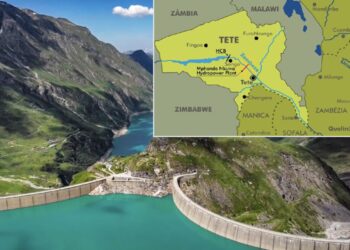The Mozambique National Resistance (Renamo) announced on 2 September that its army barracks in Zambezia Province’s Morrumbala District, where it intends to train its police force and more guerrilla forces for its army to protect, if need be, the sovereignty of the five [as received] provinces which it wants to govern.
{youtube}6-yPkO-tTe8{/youtube}
Renamo has adopted that forceful position on the eve of the first anniversary of the signing of the Accord on the Cessation of Military Hostilities by then Mozambican President Armando Guebuza and Renamo President Afonso Dhlakama, opposition leader.
That symbolic act culminated in Guebuza and Dhlakama hugging and shaking hands, but it did not bring about the peace that Mozambican people so yearn for. If, on the one hand, military clashes that went of for more than 18 months are now over, the accord’s other major objective has not been achieved yet, seeing that the process of demilitarization, demobilization, and reintegration of Renamo’s residual forces into social and economic activities in civilian life, the Mozambique Defence Armed Forces (FADM), and the Republic of Mozambique Police (PRM).
Since then, Filipe Nyusi has replaced Armando Guebuza as president of the Republic of Mozambique in the wake of the October 2014 general elections. The Renamo party never recognized their outcome because of a number of irregularities detected during the ballot.
After going back on the “caretaker government” proposal to overcome the electoral crisis, Mozambique’s largest opposition party came up with the solution that it would run autonomously the provinces of Sofala, Manica, Tete, Nampula, and Zambezia where it had most of the vote in the October 2014 general elections [Renamo also won in Niassa Province].
The ruling Mozambique Liberation! Front (Frelimo) Members of Parliament (MPs) in the National Assembly rejected Renamo’s provincial autarkies proposal, after President Nyusi and Dhlakama had met twice in Maputo in February 2015.
Also in Maputo, the so called “political talks” between the government and Renamo are still dragging on, after more than 114 rounds of talks over more than two years, and still no understanding has been reached over economic issues and the demilitarization of Renamo’s residual forces. In addition, some military confrontations have taken place again, this time in Tete Province.
Army barracks to train police and more guerrilla forces
Last week, after the head of state had issued yet another invitation for a face to face meeting, Dhlakama announced at a popular rally in Zambezia Province that “political dialogue” was over because of a lack of seriousness on the part of the Frelimo government, and start governing the five provinces where Renamo had had vote majority.
On 3 September, Renamo spokesman António Muchanga told a news conference that “the decision to put up Morrumbala army barracks was not made by President Dhlakama but by the very veterans of the struggle for democracy.” He declined to disclose how many men are deployed there, whether they have arms, and what infrastructure is in place. He pointed out, however, that after visiting the barracks in the afternoon of 1 September, Dhlakama had had to agreed with that decision “as a way of avoiding divisions with the party, as that would be very dangerous to the democracy that we want to consolidate, taking into account the fact that any combatant could make the personal decision to take up arms without secure command.”
According to Muchanga, that army barracks “(…) is a place where the combatants for democracy will gather so that they can plan how the Renamo police will be trained with a view to protecting the Renamo government in the provinces where the party had most of the vote (Sofala, Manica, Tete! , Nampula and Zambezia). If talks fail, an army has to be formed to defend the sovereignty of those regions.”
Asked when “political dialogue” might resume, Muchanga replied that “the ball is in the government’s court. If the government begins to meet the demands listed in the letter sent to the government on 25 August, Renamo will be available to return to the negotiating table.”
In its letter, the Renamo Party rejected the invitation made (again) by President Nyusi regarding a meeting with Dhlakama, alleging that the government has failed to comply with the Accord for the Cessation of Military Hostilities in that it dissolved unilaterally the International Team of Observers for the Cessation of Military Hostilities in Mozambique (EMOCHIM), and attacked the Renamo military forces that were supposed to be reintegrated.
In its letter, Renamo also accuses the government of refusing to reintegrate its men, saying that “it has only expressed an interest in removing Renamo’s weapons, and not showing an interest in the! future of those men.” It further points out that the government “is using enticement for Renamo men to drop the terms agreed on in the negotiations, and to turn up at the PRM General Command and at the FADM General Staff as Frelimo volunteers to then be received as heroes, with concomitant promotions and ranks.”
The letter further notes that “as for the second point on the agenda, regarding an assessment of government-Renamo political dialogue, we believe that it is inopportune at this time, considering that there was enough time but the government failed to show the will to settle in a good way the important problems affecting peace and democracy in Mozambique.” Renamo gave an example: although there is an understanding on rendering the state non partisan, and on economic issues, the government has refused to approve those agreements in the National Assembly.
From Muchanga’s point of view, “(…) if the government continues to pursue time-wasting! tactics, each side will occupy its own space.”

